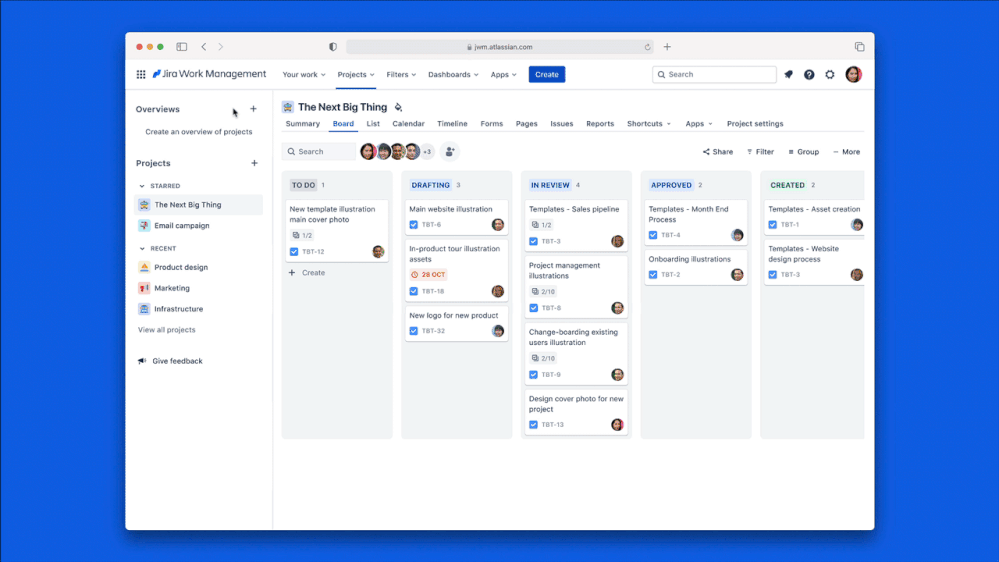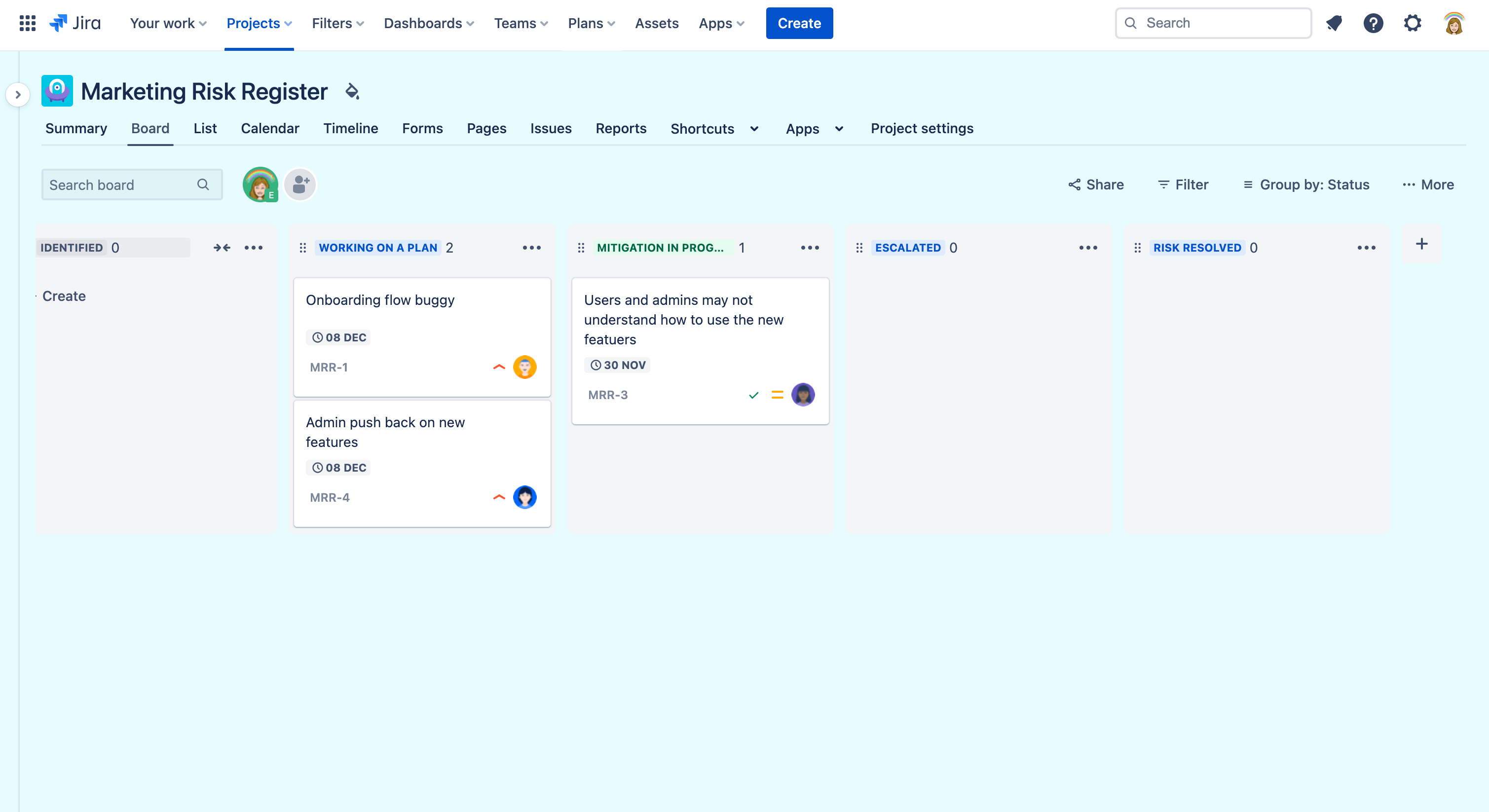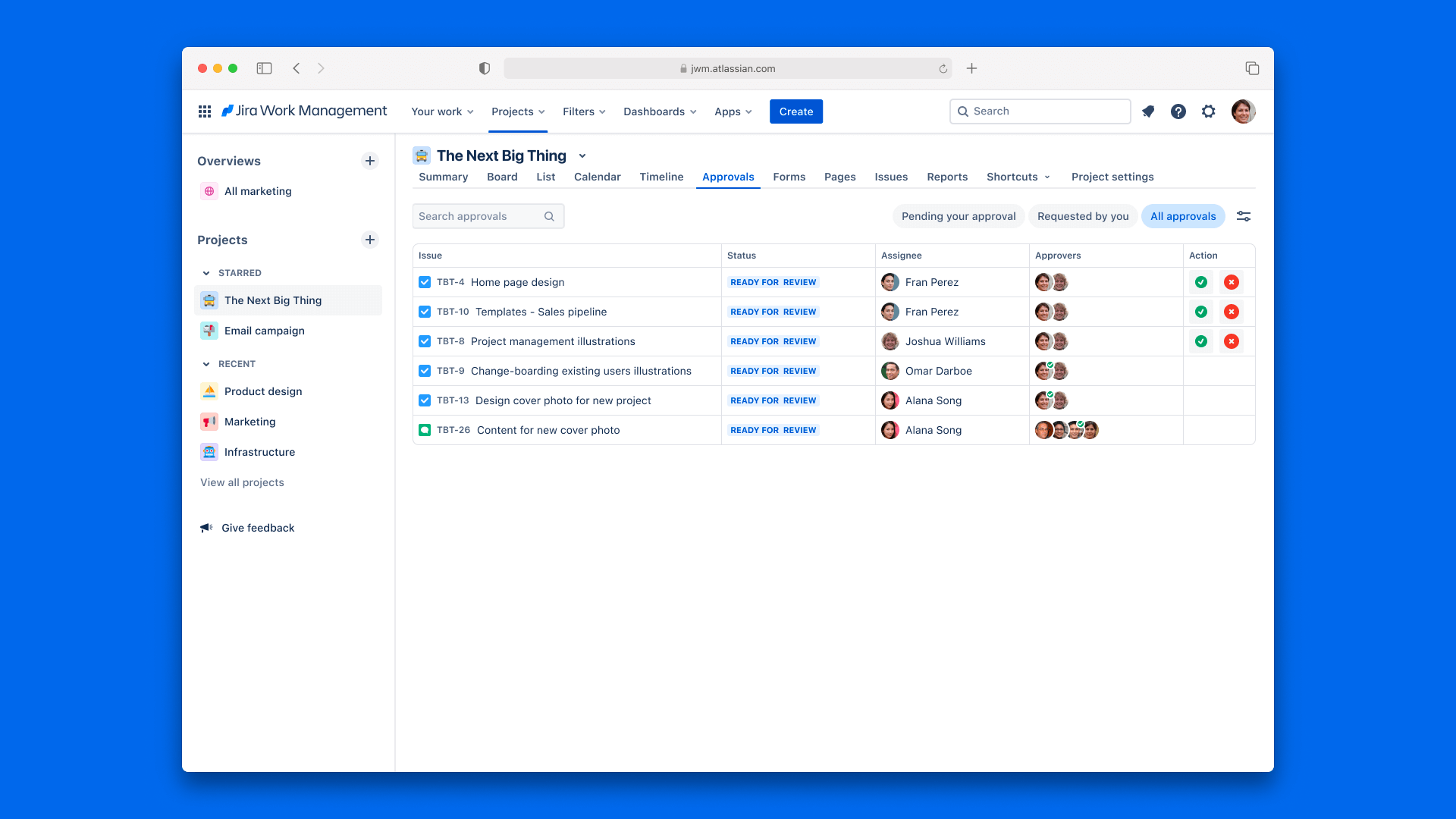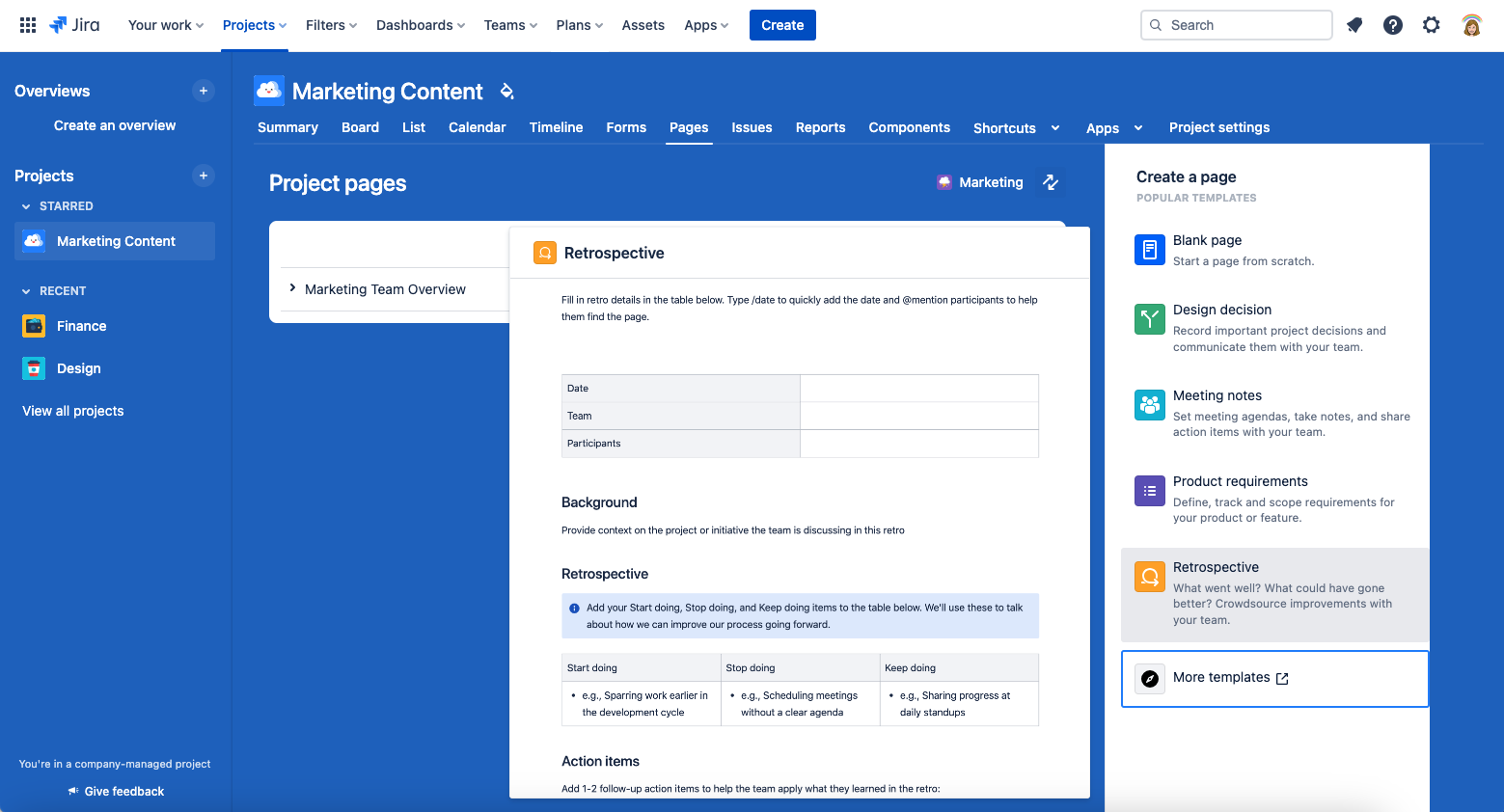Get back to project management basics
5 essential principles for success with Jira Work Management
In the wild world of project management, it often feels like we’re trying to juggle flaming chainsaws while riding a unicycle on a tightrope – and that’s before factoring in the ever-expanding toolkit of software, methodologies, and processes that are as unique to each team as their pizza topping preferences . Yes, project management has become a bit like assembling IKEA furniture blindfolded – you’ll eventually get there, possibly after a few pillow-screaming sessions, and with the inevitable spare pieces.
Today, we’re unraveling the complexities of project management to talk about five project management essentials every project manager needs for success. Luckily, Jira Work Management is perfect for helping project managers cut through the clutter and get back to basics. So what are the essentials that every project needs? Let’s dive in.
Project essential #1 – Connecting Projects to Goals:
Every project needs 3 fundamental questions answered – what are we doing (scope), what does success look like (metrics) and most importantly, why are we doing it (goal). Without those basic details, it’s impossible to know why it’s worth investing money, time, and energy on a particular project. Using Atlas – Atlassian’s free project and goal tracker – coupled with Jira Work Management, allows every project to be connected to a company or team goal and include a short weekly team update the size of a tweet. Simply link your project to your Atlas ticket, and voila – a clear connection to your project updates and team goals. Now visibility of where you are to goals is easier to find and you can see how teams are progressing along the way. Who says project updates can’t be both informative and concise?
Project essential #2 – Creating Project Overviews
Surveying the lay of the project should be as predictable as a romantic comedy. Project managers crave a simple way to gain an overview of their project, collaborate with others, and easily dive into the details where needed. With Jira Work Management, those carefully crafted overviews are built directly into your first view with the Summary page. Get essential details on your projects without drowning in the details. And, simply add multiple projects to see the same info across a wider picture of teams and tasks. No need for complex dashboard configurations.

Project essential #3 – Managing Project Risks:
Tackle project risks head-on by thinking how to mitigate them from the start. Once you go through a brainstorming activity with your team to think about “What could go wrong”, and “What lessons have we learned from our past projects”, add them to a risk specific board in Jira Work Management. Creating tickets and assigning them to owners allows you to stay on top of the risks and see how they are progressing every week.

Project essential #4 – Getting Approvals from Stakeholders:
If navigating stakeholder approvals on tasks and assets is feeling like more like a stakeout to pin down your approver, you’ll love how easy it is to mark an approver and visualize who has give you the green check mark to move forward. Approvals eliminates the need to search for who approved what and when so you no longer need to scroll furiously through slack messages like you’re searching for the lost city of El Dorado. Simply set up an automation trigger for an action to send a notification to your approver.

Project essential #5 – Connecting Tasks to Context:
Every project manager knows that project management goes beyond mere checklists. Usually, there is actual work behind that task and that has to be located somewhere – and ideally, easy to find! Jira Work Management makes the connection between tasks and context easy with pages created in Confluence directly from Jira. As a project manager, you’ll love how how you can connect every Jira Work Management task to pages, docs, and sheets, contextualizing tasks and making sure that every to-do aligns with the broader project narrative.
Project essential bonus – Learn from project mishaps
Lastly, a retrospective is the unsung but essential hero in a project manager’s toolkit. It’s the pit stop moment that allows the team to pause for reflection and improvement among fast moving projects. Teams can analyze together what went well, what could have been better, and how to fine-tune their approach moving forward. One way to do that is through a practice called the 4 L’s retrospective. This practice gives teams a chance to review what they loved, loathed, learned, and longed for in a project to ensure that each project becomes a stepping stone for even greater achievements.
Create a page directly from Jira Work Management with your Confluence integration or check this page for templates with your preferred whiteboarding tool. The “4 Ls” Retrospective Technique | Atlassian

With the complications of project management, getting back to basics is not just a desire but a necessity. Jira Work Management is a great ally for project managers looking to cover their essential needs while empowering them to focus on what truly matters. By effortlessly connecting projects to goals, creating clear and concise overviews, managing risks with ease, streamlining stakeholder approvals, and contextualizing tasks within the broader narrative, Jira Work Management becomes the compass that directs users back to the fundamentals. So, whether you’re a seasoned pro or a newcomer to the project management realm, Jira Work Management is your ticket to not only surviving but thriving in the world of projects.